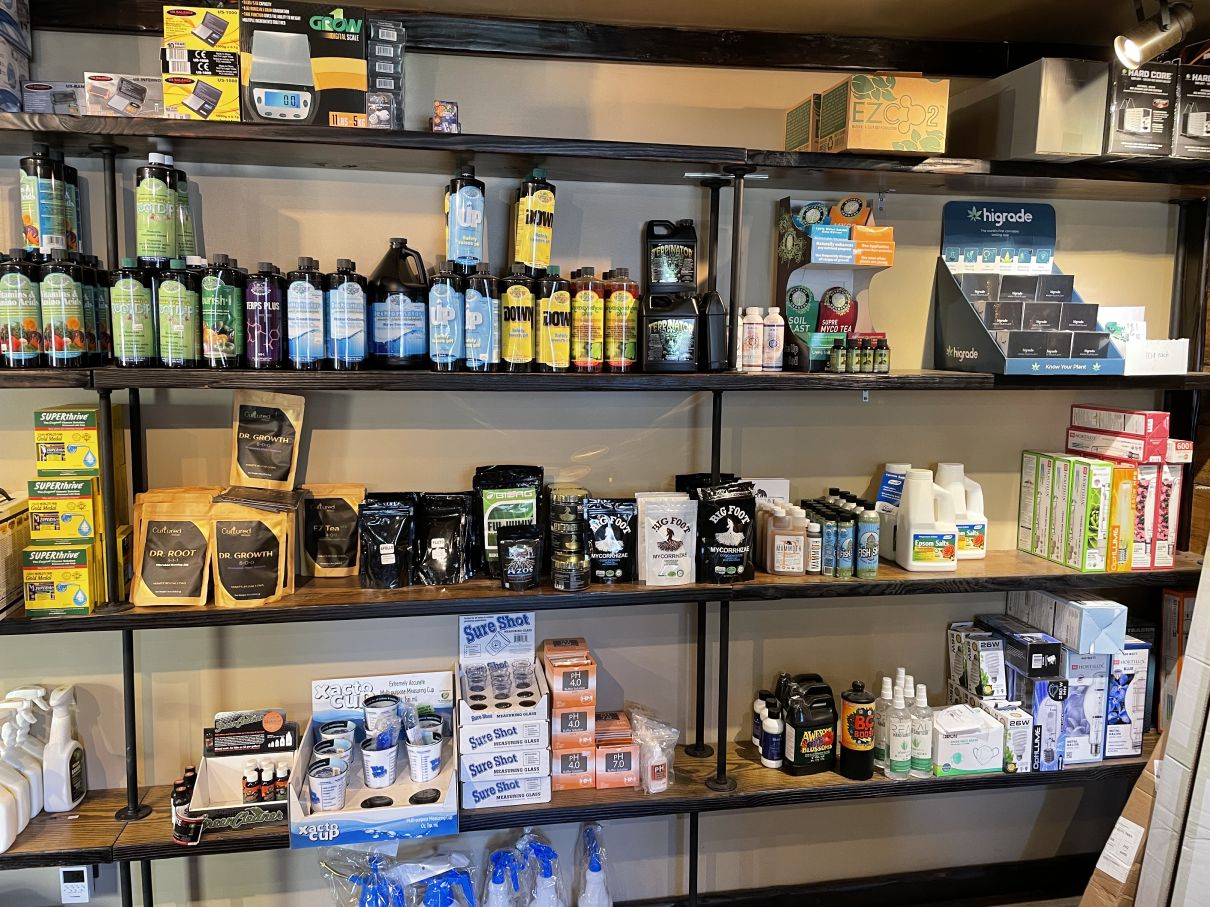Release Your Green Thumb: The Indoor Earthworm's Planting Process Demystified
Release Your Green Thumb: The Indoor Earthworm's Planting Process Demystified
Blog Article
Enhance Your Gardening Skills With Hydroponics: Exploring Advantages
The technique of cultivating plants without soil might seem non-traditional at first, but its benefits are worth considering. As we delve into the globe of hydroponic horticulture, we uncover a wide variety of benefits that not only boost plant growth yet also provide unique chances for individuals looking to boost their gardening abilities.
Advantages of Hydroponic Gardening
Hydroponic gardening offers numerous advantages due to its efficient use of sources and exact control over plant development problems. By offering plants with direct accessibility to nutrients liquified in water, hydroponic systems remove the requirement for soil, reducing water usage by approximately 90% contrasted to traditional soil-based growing. This effective nutrient distribution approach also allows for faster plant development rates and higher yields, making hydroponic gardening an appealing alternative for maximizing limited area and sources.
Additionally, the regulated environment of hydroponic systems makes it possible for farmers to maximize elements such as humidity, ph, and temperature level levels, causing healthier plants with reduced danger of illness and parasites. This precise control over growing problems not just promotes faster and extra consistent plant development but additionally allows for year-round cultivation no matter exterior weather conditions.
Faster Plant Development With Hydroponics
Using sophisticated nutrient delivery systems, hydroponic horticulture assists in accelerated plant development rates contrasted to traditional soil-based farming techniques. In hydroponic systems, plants have straight accessibility to crucial nutrients liquified in water, permitting optimum absorption without the requirement to use up power developing comprehensive origin systems to browse for nutrients in the soil. This reliable nutrient distribution system enables plants to redirect their power towards durable vegetative development and prolific fruiting or flowering.
Moreover, the controlled atmosphere in hydroponic configurations makes certain that plants receive the perfect problems for growth continually. Aspects such as temperature, ph, light, and humidity levels can be thoroughly monitored and gotten used to produce the optimal expanding atmosphere for every plant range. By eliminating the variability existing in soil-based gardening, hydroponic systems offer plants with a favorable and secure setup that maximizes their development potential.

Water Preservation Conveniences
Provided the reliable nutrient delivery device and regulated atmosphere of hydroponic systems, one substantial advantage worth checking out is the preservation of water sources. Hydroponic gardening consumes to 90% much less water compared to typical soil-based horticulture approaches. This considerable decrease is credited to the closed-loop system where water is recirculated and reused, minimizing wastage. In conventional soil horticulture, water is lost with dissipation, drainage, and percolation past the root zone, bring about inadequacies. In hydroponics, the nutrient option is supplied directly to the plant roots, ensuring optimal water go to my blog uptake and lowering water loss.
Moreover, hydroponic systems permit accurate control over water usage, with the ability to change and keep an eye on nutrient levels based on plant demands. This targeted technique stops overwatering, a typical problem in soil-based gardening, additional adding to water conservation efforts. By taking full advantage of water efficiency and lessening waste, hydroponic gardening provides itself as a eco-friendly and sustainable choice for people seeking to decrease their water consumption in gardening methods.
Year-Round Plant Farming

By managing factors such as temperature level, nutrient, and light degrees, hydroponic systems allow plants to thrive regardless of outside weather. This constant setting permits continuous plant growth and harvest, giving a trusted supply of fresh produce even in the dead of winter months.
In addition, the capacity to grow plants year-round in hydroponic systems opens opportunities for farmers to trying out a larger selection of plants, expand their growing seasons, and increase total performance. This versatility and reliability make year-round plant farming in hydroponics a beneficial device for both hobbyists and business farmers looking to maximize their horticulture initiatives.
Enhancing Gardening Skills Via Hydroponics
Creating efficiency in hydroponics can empower garden enthusiasts with a deeper understanding of plant growing strategies and improve their overall gardening skills. Hydroponic systems provide a controlled environment where gardeners can closely keep an eye on and change factors such as nutrient levels, pH equilibrium, and lighting problems to optimize plant growth. By grasping these aspects, gardeners can adjust their skills and knowledge, bring about more successful harvests and healthier plants.
Additionally, hydroponic gardening difficulties traditional concepts of soil-based growing, encouraging garden enthusiasts to think outside the box and experiment with cutting-edge growing techniques. This testing can foster creativity and analytical abilities, as The Indoor Earthworm garden enthusiasts find out to adjust and fix issues unique to hydroponic systems. In addition, the efficiency of hydroponic configurations, such as upright yards or nutrient film methods, can show gardeners just how to make the most of space and resources properly.
Verdict
In final thought, hydroponic gardening provides numerous benefits such as faster plant development, water conservation, and year-round farming. By checking out the advantages of hydroponics, people can boost their horticulture skills and attain effective plant growth. Take into consideration incorporating hydroponic techniques into your horticulture methods to take full advantage of efficiency and productivity in your yard.
As we dig into the globe of hydroponic horticulture, we uncover a huge selection of benefits that not just improve plant development yet also offer unique opportunities for people looking to raise their horticulture abilities.Utilizing advanced nutrient distribution systems, hydroponic gardening assists in sped up plant growth rates contrasted to conventional soil-based growing methods. By getting rid of the irregularity present in soil-based gardening, hydroponic systems give plants with a beneficial and stable setting that optimizes their growth possibility.
Enhancing the sustainability and performance of horticulture practices, year-round plant farming in hydroponic systems supplies a consistent and dependable technique for cultivating a variety of crops no matter of seasonal constraints. The Indoor Earthworm.In conclusion, hydroponic gardening supplies countless advantages such as faster plant growth, water preservation, and year-round growing
Report this page